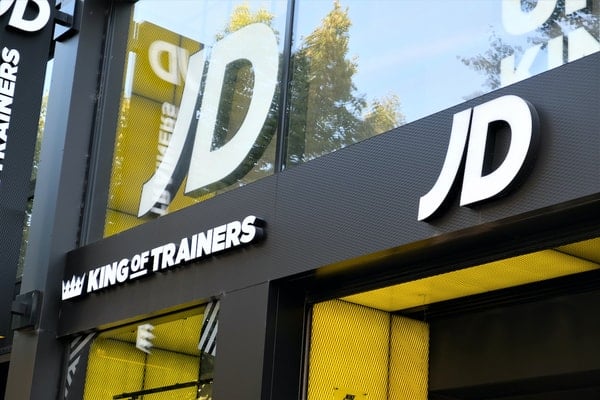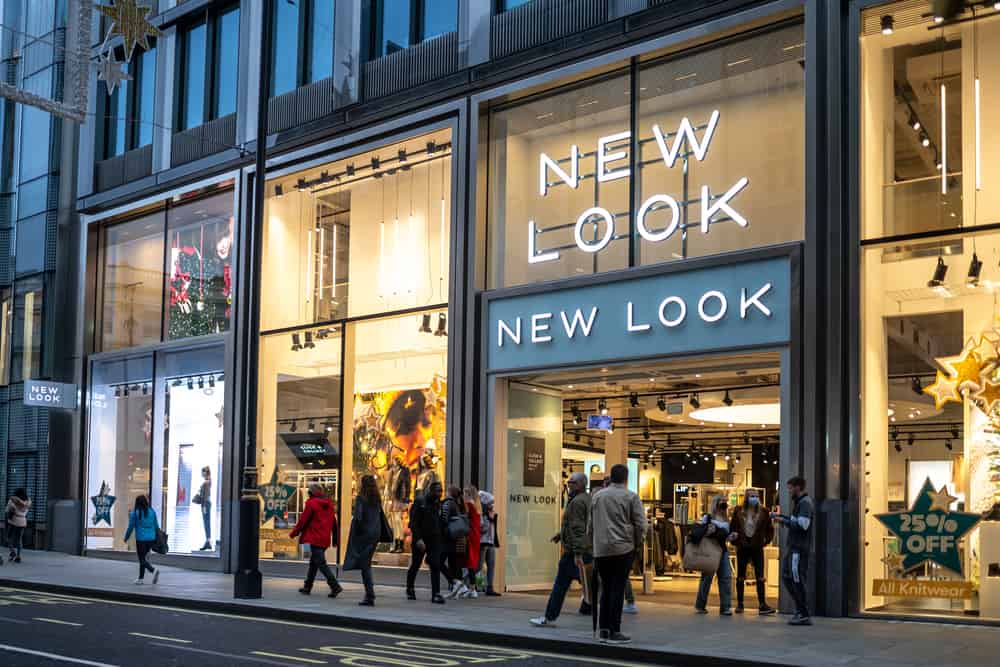JD Sports says it is considering opening a distribution centre in the EU, transferring up to 1,000 jobs into the European market. Rather than expanding and recruiting in the UK, it would do so in the EU instead – because Brexit has worked out worse for the business than expected.
The sports fashion retailer’s executive chairman Peter Cowgill says that the effects of Brexit are turning out to be “considerably” worse than expected, and is costing it in the “double digit millions”. He told Radio 4’s World at One today that JD Sports currently ships online sales from its Rochdale distribution centre to Europe – and red tape introduced as a result of the UK and EU Trade and Cooperation Agreement has caused delays and added costs. Tariffs, incurred as a result of European rules of origin are adding significant further costs, since many of the products it sells are made in the Far East and imported to the UK before shipping to stores in the UK and Europe.
“That pushes you to want to locate, or need to locate, a distribution centre in Europe and with it goes the employment that was previously in the UK,” says Cowgill. “With the tariffs that apply it would make a lot of economic sense for us to have a distribution centre in Europe as well as the UK. It would mean the transfer of a number of jobs into Europe. We would think the size of distribution centre that we would have to open would probably employ 1,000 people over there.”
He adds: “The implications of [Brexit] have probably been appreciated after the event and probably not attracted the airtime or publicity that they otherwise would have done because obviously Covid is so much more serious than that at present.”
Cowgill says the retailer has demonstrated its ability to adapt during the Covid-19 pandemic.
“We’ve proven a certain level of agility, the ability to move from bricks and mortar to online fairly quickly and when the stores were open we got an increased a level of sales compared to the previous years,” he says.
Whether it now has to close stores is yet to be seen – and will depend on where the market levels out. But he says the cost of running stores will need to fall if running them is to make sense. “Shopping centres and high streets have got to be repriced,” he says. That applies to both rents and to business rates. “Accommodation expenses that have been too high for a long time have been causing bricks and mortar to be economically unviable,” he says.
He adds: “It really goes back to return on capital and the funding structure of shopping centres in the first place. Five or 10 years ago, rent increases were incessant and the whole system of rent appraisals was incorrect. Where we are now, to an extent was inevitable and it does boil down to pricing.”
Business rates, he says, must be suspended for a second year’s holiday. He also suggests that lockdown rules have not been creative. A blanket business rates discount, he says, means that “some closed retailers are now subsiding those that have been able to open”. Added to that, “The number of essential retailers making hay out of selling clothes while clothing retailers are closed is bizarre.”
He says he can understand the thinking behind an online sales tax, an idea that has recently been suggested once more. But he says it is important that cost is not passed onto the consumer. And he says multichannel retailers, such as JD Sports, invest heavily in selling online and through stores, generating high levels of employment.
JD Sports said in September that it was exploring new ways of managing its supply chain in the wake of Brexit. At the time, it had opened an 80,000 sq ft warehouse in Belgium to handle product bound for European shops – and to test the market. The new site was not big enough to handle all its European stock and did not fulfil online orders. However, says JD Sports, it is helping the business to learn as it plans for “a longer-term, more permanent European supply chain strategy”.
It also said at the time that 90% of stock was purchased from international brands without visibility of the original factory costs and that there was a “risk of duties being payable for goods which transit to/from countries in the EU”. It added: “We are currently looking at options to mitigate some of this in the short term whilst we establish a more permanent European supply chain infrastructure.”
Cowgill’s comments follow estimates from the Road Haulage Association that exports via lorry to the EU are 68% down on previous levels. But the government says that lorry levels are still at least 95% of normal January levels. The RHA says that many lorries are making return journeys empty.
Many retailers, including Ocado today, have said that the Brexit agreement is not having a significant effect on their supply chains. But Marks & Spencer has said while the deal is not affecting the goods it sells in the UK, there are potential tariffs and complex administration affecting the part of its range that is exported to the EU. This, it says, “will significantly impact our businesses in Ireland, the Czech Republic and our franchise business in France which we are actively working to mitigate”.
JD Sports is a Leading retailer in RXUK Top500 research.
Updated following JD Sports clarification to the BBC to show that jobs will be created in Europe rather than moved from the UK.









